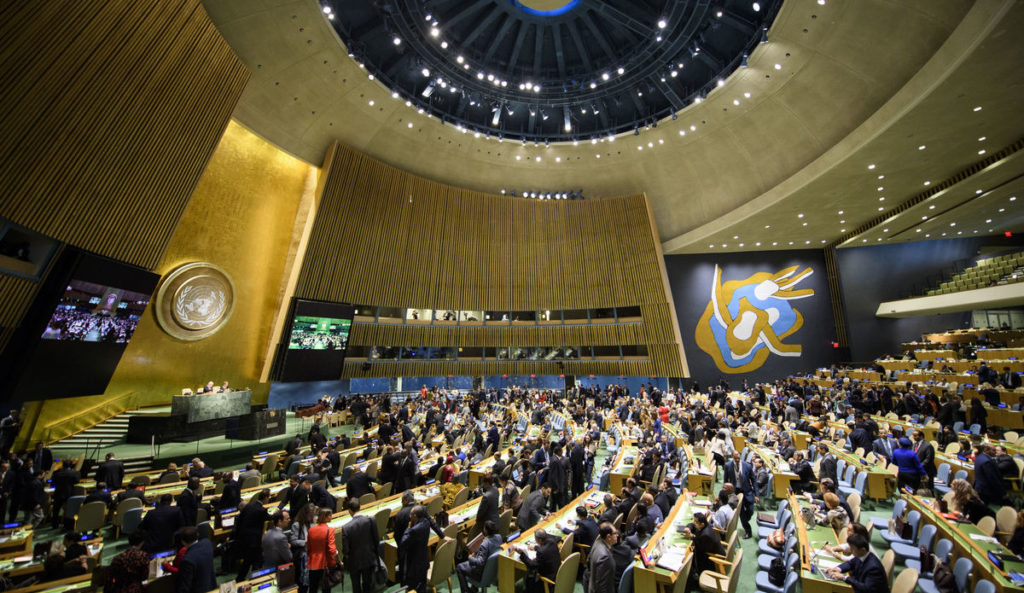New York, September 26 – World leaders ended their week-long general debate in the UN General Assembly annual session with calls to end Russia’s war in Ukraine and to reform the United Nations Security Council so it can reflect “realities of this century.”
Csaba Kőrösi, president of the 77th session of the General Assembly, closed the debate during which 190 governments delivered speeches, the largest number of in-person attendees since Covid-19 pandemic erupted in early 2020. He pointed out that only 23 women were among the 190 speakers who included 76 presidents, 50 prime ministers and the remaining were vice presidents and ministers.
Kőrösi said in his closing remarks that he sensed from the world leaders a “growing awareness that humanity has entered a new era” and that there are “significant transformations in the making.”
“We have not even got a name for the new epoch yet, we cannot scientifically describe it yet, but we feel that it has arrived,” he said. “The basic conditions of our global cooperation have changed. We live now in a different world. A world of new challenges, changing priorities, changing roles, and changing ways.”
He said calls to end the war in Ukraine reverberated within the halls of the assembly and speakers described their pain of shortages, inflation, the impact of refugees, concern about safety of nuclear plants and fears of nuclear attacks.
“Yet, be it the largest and the most acute, the war in Ukraine is one of nearly 30 armed conflicts worldwide. And none of them is improving,” he said.
One key issue that has received strong support from world leaders is the need to modernize the United Nations, revitalize the General Assembly and reform the Security Council.
“This is in line with my own conviction that the General Assembly should be ready to respond better to the interlocking crises and that the Security Council must reflect the realities of this century,” he said.
Nuclear blackmail won’t work
While the assembly session heard its last speakers, UN Secretary-General Antonio Guterres issued a strong statement calling for an end to nuclear blackmail.
“The idea that any country could fight and win a nuclear war is deranged,” Guterres told a forum for the International Day for the Total Elimination of Nuclear Weapons, a priority that has so far eluded the organization’s decades-old efforts.
“The era of nuclear blackmail must end,” he said. “Any use of a nuclear weapon would incite a humanitarian Armageddon. We need to step back.”
President Vladimir Putin has threatened to use nuclear weapons in the war in Ukraine following serious setbacks in war efforts to conquer that country.
The UN said there are today more than 12,000 nuclear weapons and the countries that possess them have “well-funded and long-term plans to modernize their nuclear arsenals.”
“More than half of the world’s population still lives in countries that either have such weapons or are members of nuclear alliances. While the number of deployed nuclear weapons has appreciably declined since the height of the Cold War, not one nuclear weapon has been physically destroyed pursuant to a treaty. In addition, no nuclear disarmament negotiations are currently underway.”
The world’s known nuclear powers are the United States, Russia, United Kingdom, China and France. Those five countries are also permanent members with veto power in the 15-nation Security Council which can make decisions regarding global peace and security issues.
(By J. Tuyet Nguyen)
United Nations correspondent journalists – United Nations correspondent journalists – United Nations correspondent journalists – United Nations journalism articles – United Nations journalism articles – United Nations journalism articles – United Nations News – United Nations News – United Nations News

